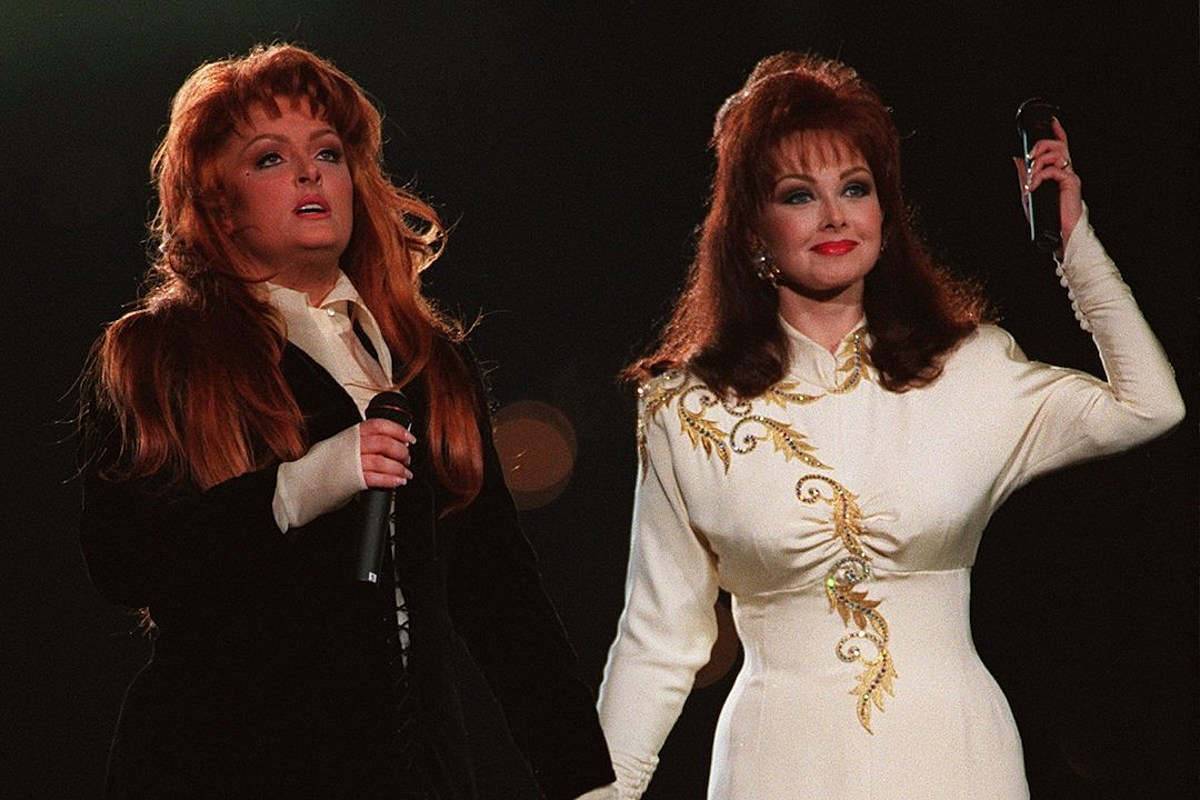Home>Production & Technology>Music Video>Why You Always Lying Music Video


Music Video
Why You Always Lying Music Video
Published: November 12, 2023
Watch the captivating "Why You Always Lying" music video and groove to the catchy beats, as this hilarious viral sensation takes the internet by storm!
(Many of the links in this article redirect to a specific reviewed product. Your purchase of these products through affiliate links helps to generate commission for AudioLover.com, at no extra cost. Learn more)
Table of Contents
Introduction
The music video industry has undergone a remarkable transformation over the past few decades, becoming an integral part of the music listening experience. With the rise of platforms like YouTube and Vevo, we now have easy access to a vast collection of music videos from various genres and artists.
One gem among the multitude of music videos that has captured the attention of viewers, and even spawned a popular meme, is the music video for the song “Why You Always Lying”. Released in 2015, this music video quickly gained viral status, with its catchy tune, comedic lyrics, and hilarious visuals.
Created by comedic genius Nicholas Fraser, the “Why You Always Lying” music video instantly became a sensation on the internet. Through clever wordplay and relatable scenarios, the video perfectly encapsulates the frustration many people feel when dealing with someone who constantly lies.
In this article, we will explore the background, creation, and impact of the “Why You Always Lying” music video. We will dive into the lyrics, dissect the visuals, and discover the cultural references and controversies surrounding this viral sensation. So sit back, relax, and get ready to delve into the world of the “Why You Always Lying” music video.
Background of the Music Video
The “Why You Always Lying” music video originated from a Vine with the same name, created by Nicholas Fraser. Vine, a now-defunct short-form video app, was known for its six-second video loops and became a breeding ground for internet comedy and viral trends. Fraser’s Vine quickly gained popularity due to its relatable and humorous content, which led to its transformation into a full-length music video.
The song itself is a parody of R&B artist Next’s hit single “Too Close,” released in 1998. Taking the iconic hook from the original song, Fraser created new lyrics that depicted the frustration of dealing with someone who constantly lies. This clever twist on a well-known tune instantly resonated with viewers, making it a viral sensation.
After the Vine gained massive attention, Fraser enlisted the help of producer DJ Bigg Mann to create the music for the full-length version of “Why You Always Lying.” The song’s catchy melody and humorous lyrics perfectly complemented the visuals, creating a humorous and relatable experience for viewers.
When it came to the visuals, Fraser and his team took a DIY approach. The music video was shot on a relatively low budget, but this didn’t hinder its impact. The simplicity and authenticity of the video added to its charm, making it feel more genuine and relatable.
Upon its release on YouTube in 2015, the “Why You Always Lying” music video quickly gained traction. Its infectious humor, relatable theme, and catchy melody resonated with audiences, leading to widespread sharing on social media platforms.
The success of the “Why You Always Lying” music video can be attributed to the perfect storm of clever songwriting, relatable content, and the power of social media sharing. It served as a testament to the transformative power of the internet, where a six-second video clip could evolve into a full-length viral sensation.
Overview of the Song and Lyrics
The song “Why You Always Lying” is a clever and catchy parody of Next’s hit single “Too Close.” Nicholas Fraser, the mastermind behind the music video, took the original hook of “Too Close” and reimagined it with his own comedic lyrics. The result is a hilarious take on the frustration of dealing with constant lies.
The lyrics of “Why You Always Lying” revolve around a recurring theme: the narrator’s exasperation with someone who habitually lies. It humorously portrays moments where the individual in question makes outrageous claims or attempts to deceive others, only to be called out by the narrator.
Fraser’s witty wordplay and clever punchlines make the song irresistibly memorable. Lines like “Stop lying, always lying to me” and “Oh my God, stop fucking lying” have become iconic catchphrases in pop culture, further cementing the song’s status as a viral sensation.
Through his lyrics, Fraser skillfully taps into the universal frustration people feel when dealing with dishonest individuals. Whether it’s exaggerated stories of success, fake excuses, or phony promises, we can all relate to the annoyance caused by such behavior.
Despite the comedic nature of the song, “Why You Always Lying” also carries a deeper message about the importance of honesty and authenticity in relationships. It serves as a reminder to value truthfulness and to be wary of those who consistently deceive others.
With its catchy melody, clever lyrics, and relatable theme, “Why You Always Lying” has resonated with millions of viewers around the world. The song’s ability to capture the frustration of dealing with habitual liars in a humorous and lighthearted way has contributed to its enduring popularity.
Next time you find yourself dealing with someone who can’t seem to tell the truth, you might just find solace in the words of the “Why You Always Lying” song. It’s the perfect anthem for calling out those who constantly fabricate stories and offers a dose of comedic relief in the process.
Creation and Release of the Music Video
The creation and release of the “Why You Always Lying” music video was a result of the viral success of Nicholas Fraser’s Vine. Eager to capitalize on the video’s popularity, Fraser enlisted the help of producer DJ Bigg Mann to create a full-length version of the song.
The music video was shot on a shoestring budget, with Fraser and his team utilizing their DIY skills to bring the visuals to life. The video primarily takes place in a suburban setting, with Fraser in various locations, including a backyard, a living room, and a street.
Despite its modest production, the music video exudes a playful energy and charm. The visuals are straightforward yet effective, perfectly complementing the humorous lyrics and tone of the song. Fraser’s comedic timing and expressive facial expressions add to the overall comedic appeal of the video.
The “Why You Always Lying” music video was released on YouTube in 2015 and quickly gained traction on social media platforms. Internet users were captivated by the catchy tune, hilarious lyrics, and relatable content, leading to widespread sharing and meme creation.
What made the release of the music video even more impactful was the timing. In an era when social media was becoming increasingly influential, the “Why You Always Lying” video was perfectly positioned to go viral. The combination of its relatable content, comedic appeal, and the power of online sharing helped propel it to new heights of fame.
The success of the music video spawned remixes, parodies, and covers by content creators across the internet. The “Why You Always Lying” meme became a pop culture sensation, with countless individuals recreating Fraser’s iconic dance moves and lip-syncing along to the song.
Overall, the creation and release of the “Why You Always Lying” music video demonstrated the power of internet culture and the ability of a simple concept to captivate and entertain millions. It showcased the viral potential of relatable and humorous content and paved the way for future internet sensations.
Reception and Impact
The “Why You Always Lying” music video had a profound impact on internet culture and garnered immense reception from viewers around the world. Its comedic appeal and relatable theme resonated with millions, leading to widespread sharing and engagement on social media platforms.
Upon its release, the music video quickly amassed millions of views on YouTube, becoming a viral sensation. It sparked a wave of creativity as fans created their own “Why You Always Lying” memes, remixes, and parodies. The song’s catchy melody and humorous lyrics became widely recognized and quoted, further solidifying its influence.
The impact of the “Why You Always Lying” music video extended beyond the realm of entertainment. It became a cultural phenomenon, sparking conversations about the prevalence of dishonesty in everyday life. The video’s underlying message about the importance of honesty resonated with viewers, prompting reflection and discussion.
Furthermore, the success of the music video catapulted Nicholas Fraser to internet fame. He gained a significant following on social media platforms and became a sought-after entertainer, landing various opportunities in the entertainment industry. Fraser’s comedic talent and innovative approach resonated with audiences and showcased the power of internet stardom.
The “Why You Always Lying” music video also left a lasting impact on the music industry itself. It demonstrated the power of online platforms in promoting and popularizing music. Artists and labels took note of the video’s viral success, leading to an increased focus on creating visually captivating and shareable music videos to resonate with audiences.
Additionally, the video’s success paved the way for other humorous and satirical music videos to find popularity online. It opened doors for content creators to explore comedic elements in their music videos, leading to a broader range of creative expressions and expanding the boundaries of music video storytelling.
Even years after its release, the “Why You Always Lying” music video continues to have a lasting impact. It remains an iconic internet sensation and a testament to the power of humor, relatability, and viral content. The video’s ability to entertain, inspire creativity, and spark conversations showcases its enduring influence in the ever-evolving landscape of internet culture.
Cultural References and Memes
The “Why You Always Lying” music video became more than just a viral sensation – it also gave birth to countless cultural references and memes. The catchy tune, humorous lyrics, and iconic visuals quickly embedded themselves in the collective memory of internet culture.
One of the most prominent cultural references stemming from the music video is the “Why You Always Lying” meme itself. Internet users across various platforms embraced the meme, creating their own versions, remixes, and parodies. The meme featured individuals mimicking Nicholas Fraser’s dance moves and lip-syncing to the song, spawning a wave of creative and hilarious content.
The “Why You Always Lying” meme became so popular that it transcended the virtual realm and seeped into everyday conversations. People would jokingly quote the catchy lyrics, inserting them in appropriate situations to add a touch of humor. The meme became a shorthand way of expressing disbelief or calling out dishonesty in a lighthearted manner.
Additionally, the music video became a source of inspiration for content creators across different platforms. Artists and comedians referenced the song and recreated its style to make their own comedic videos. The “Why You Always Lying” meme became a part of internet culture, with its influence being felt in various corners of the online world.
The music video’s impact extended beyond the digital space and found a place in mainstream media. It was referenced and parodied in television shows, online sketches, and even live performances. This testament to its cultural relevance demonstrates the profound impact it had on popular culture.
The “Why You Always Lying” music video also paved the way for other satirical and comedic music videos to gain traction. It sparked a trend of incorporating humor and relatable content in music videos, encouraging artists and directors to explore unconventional and entertaining visuals.
Overall, the “Why You Always Lying” music video not only became a viral sensation but also left an indelible mark on internet culture. Its lasting influence is evident in the proliferation of memes, references, and creative spin-offs that continue to entertain and engage audiences to this day.
Controversies Surrounding the Music Video
While the “Why You Always Lying” music video was predominantly praised for its comedic genius and viral success, it was not without its fair share of controversies. As with any popular piece of content, there were critics and controversies that emerged surrounding the video.
One of the main controversies surrounding the music video was its use of copyrighted material. The song heavily sampled Next’s hit single “Too Close,” raising concerns about potential copyright infringement. However, the video and song were released on YouTube without any legal repercussions, suggesting that it was deemed to fall under fair use or parody laws.
Another controversy that arose was regarding the artist, Nicholas Fraser, himself. Some critics argued that the video perpetuated negative stereotypes, particularly in relation to the language used and the exaggerated portrayal of frustration. They claimed that the video reinforced harmful tropes and could potentially encourage aggressive or confrontational behavior.
Additionally, some viewers took issue with the comedic nature of the video, arguing that it trivialized the serious issue of dishonesty. They believed that the humorous approach undermined the importance of truthfulness in relationships and society as a whole.
Furthermore, there were debates surrounding the song’s lyrics. While many found them relatable and funny, others felt that they were too explicit or vulgar. Some critics believed that the explicit language detracted from the appeal of the video and made it less suitable for a wider audience.
Despite these controversies, it is important to note that the “Why You Always Lying” music video was primarily intended as a comedic parody. Comedy often involves pushing boundaries and challenging sensibilities, and this video was no exception. However, it is crucial to have ongoing discussions surrounding the impact and implications of such content.
Despite the controversies, it is undeniable that the “Why You Always Lying” music video made a significant impact on internet culture and popularized the use of humor in music videos. It sparked conversations about fair use and copyright, as well as the boundary between comedy and offensive content. These discussions are essential in shaping the future of online entertainment and the responsibility of content creators.
Analysis of the Visuals and Cinematography
The “Why You Always Lying” music video may have been created on a low budget, but its visuals and cinematography effectively enhance the comedic tone and impact of the song. Despite its simplicity, the video’s creative choices contribute to its charm and memorability.
The video primarily takes place in various suburban settings, offering a relatable backdrop to the humorous narrative. Whether it’s the backyard, living room, or street, these locations provide a familiar context for the audience, reinforcing the everyday scenarios depicted in the song.
One striking visual element of the music video is Nicholas Fraser’s expressive and exaggerated facial expressions. His comedic timing and animated reactions add an extra layer of humor to the video. Fraser’s ability to convey frustration and disbelief through his facial expressions enhances the comedic impact of the lyrics, drawing the audience into the absurdity of the situations.
Additionally, the video utilizes creative editing techniques to add comedic effect. Quick cuts, zoom-ins, and freeze frames are used to emphasize certain moments and create comedic timing. These editing choices help punctuate the humorous punchlines and heighten the comedic value of the video.
The color palette of the “Why You Always Lying” music video is bright and vibrant, further contributing to its lighthearted and comedic atmosphere. The use of bold and contrasting colors creates visual interest and adds a sense of energy to the video. This choice enhances the overall viewing experience and draws the audience’s attention to the comedic elements of the visuals.
The music video’s camera movements are simple yet effective. Steady shots, close-ups, and occasional pans are used to capture the performance and highlight key moments. These camera movements, although unassuming, help maintain focus on the lyrics and comedic actions, ensuring that the audience does not miss any of the amusing details.
Overall, the visuals and cinematography of the “Why You Always Lying” music video may be modest, but they contribute significantly to its comedic impact. The relatable settings, expressive facial expressions, creative editing techniques, vibrant color palette, and well-executed camera movements all work together to enhance the humor of the lyrics and make the video an engaging and enjoyable experience.
Behind-the-Scenes: Making of the Music Video
The making of the “Why You Always Lying” music video was a collaborative effort that showcased the creativity and resourcefulness of the team involved. Despite the video’s low budget, the production managed to create a visually appealing and humorous experience.
One of the key elements in the making of the music video was Nicholas Fraser’s vision and comedic talent. As the mastermind behind the original Vine and the lyrics, Fraser brought his unique style and personality to the forefront. His improvisational skills and comedic timing were instrumental in shaping the video’s humorous narrative.
The production team embraced a DIY approach, using whatever resources were available to create the desired visuals. This included shooting in various locations, such as Fraser’s own backyard, living room, and a public street. By utilizing everyday settings, the video maintains a relatable and authentic feel.
The cinematography of the video was executed by a small crew, but they managed to capture the essence of each scene effectively. They employed a combination of steady shots, close-ups, and zooms to highlight the comedic actions and Fraser’s expressive reactions. These camera movements were meticulously planned to enhance the comedic timing and maintain the audience’s engagement throughout the video.
Editing played a crucial role in bringing the video to life. The team made clever use of quick cuts, freeze frames, and zoom-ins to punctuate the humorous moments and emphasize the lyrics. The editing process involved carefully selecting the best takes, syncing them with the song’s rhythm, and enhancing their comedic impact.
Despite the video’s simplicity, achieving the desired comedic effect required collaboration and experimentation. The team relied on trial and error, trying different approaches to capture the desired humor. They brainstormed creative ideas and continuously refined the execution until they achieved the perfect balance of wit and authenticity.
Throughout the production, there was an enthusiastic and positive energy on set. Everyone involved, from the crew to Fraser himself, was dedicated to creating a fun and engaging experience for the viewers. Their passion and commitment are evident in the final product, as the video exudes an infectious energy that resonates with its audience.
In summary, the making of the “Why You Always Lying” music video showcased the creativity and resourcefulness of the production team. They embraced a DIY approach, used everyday settings, and relied on clever editing techniques. The collaboration between Nicholas Fraser and the crew resulted in a visually appealing and humorous video that captivated audiences worldwide.
Conclusion
The “Why You Always Lying” music video stands as a testament to the power of viral content and the impact of internet culture. With its catchy tune, comedic lyrics, and relatable theme, the video captured the attention of millions and became a cultural phenomenon.
From its humble beginnings as a Vine, the video’s success showcased the transformative power of the internet, where a short six-second clip could evolve into a full-length viral sensation. The video’s widespread sharing and engagement on social media platforms demonstrated the ability of relatable and humorous content to resonate with audiences worldwide.
The impact of the “Why You Always Lying” music video extended beyond its viral status. It spawned a plethora of cultural references and memes, which became ingrained in internet culture. It also inspired other content creators to explore humor and satire in their own music videos, pushing the boundaries of creative expression.
Despite some controversies surrounding copyright and its comedic approach, the video left an indelible mark on popular culture. It showed the power of humor in addressing universal frustrations and sparked conversations about honesty and authenticity in relationships and society.
The making of the video showcased the creativity and resourcefulness of the production team, who managed to create a visually appealing and entertaining experience on a low budget. The DIY approach and collaborative efforts resulted in a video that continues to captivate viewers today.
In conclusion, the “Why You Always Lying” music video is a shining example of the transformative nature of internet culture. It entertained millions, created lasting cultural references, and sparked conversations about honesty and relatability. Through its catchy tune, clever lyrics, and humorous visuals, the video will continue to be remembered as a comedic gem that captured the essence of frustration and deceit.











